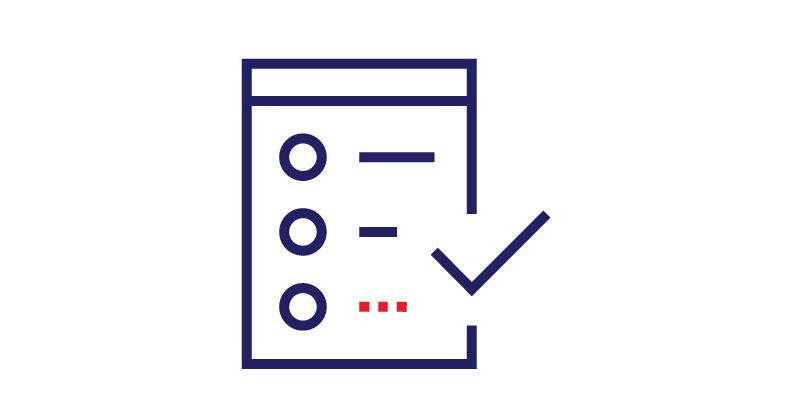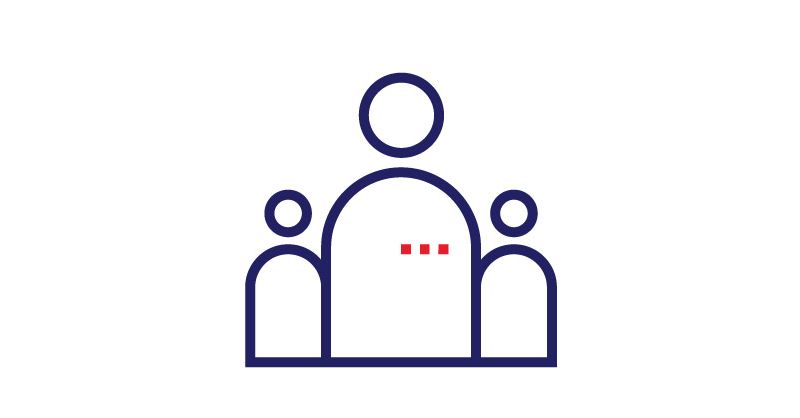This is an elective for Postgraduate students, who want to find their own opportunity in the workplace.
Who can apply?
You can apply for this elective if you are:
A postgraduate student within the College of Business and Law, who has completed their foundation courses and has an unused/available elective within the course structure of their program (if you are unsure, please verify with Business Connect)
A postgraduate student from another college and have an unused/available university elective
Not a RMIT Online (Keypath) student
What does this course involve?
This course provides students with the opportunity to work with a partner organisation (usually unpaid), to assist in the transition between university and their future careers. Partner organisations may be from a diverse range of industries and sectors, including private industries and not-for-profit organisations. Students will undertake the placement under the guidance of a workplace mentor and with the support of an academic and professional University staff. Executive Committee Club members of RMIT Clubs and Societies can also use their volunteering work as part of this elective.
Please Note: Unpaid internships that are outside of an accredited University program may be in breach of the Fair Work Act and therefore might be illegal. For further information please refer to the Fair Work Ombudsman website.
How many hours am I expected to do?
The total amount of time at the workplace depends on which Business Internship elective course you enrol into.
You have the option to enrol into:
| Course code | Course name | Credit points | Duration of internship required | Example working hours |
|---|---|---|---|---|
| BUSM4483 | Postgraduate Business Internship | 12 credit points | 120 hours | 1-2 days per week over 3 months |
| BUSM4609 | Postgrad Business Internship | 24 credit points | 240 hours | 2-4 days per week over 3 months |
When can I undertake a placement?
Internships should take place within the teaching period dates for the academic semester that corresponds with the course enrolment.
The Postgraduate Business Internship 1a and 2a courses are offered during Semester 1 (March – June), Semester 2 (July – October) and the November Flexible Semester (November – February).
You can commence your placement once you have enrolled in the course and have worked through the necessary administrative steps. This includes having your placement approved by the Course Coordinator and ensuring the WIL Agreement has been completed.
For the list of key enrolment dates, please visit the academic calendar for higher education important dates.
Ensure you secure and notify the WIL team prior to the Last Day to Add a course in the teaching period you want to enrol in.
What will I learn from this course?
You will achieve the following outcomes:
Integrate and apply discipline knowledge in a practical workplace context.
Communicate effectively with a range of specialist and non-specialist audiences.
Demonstrate the capacity to work collaboratively within an organisation.
Critically reflect on the design, implementation and evaluation of a work-based project or placement.
You can find more information about this elective here.
1. Source your own placement relevant to your degree

You are responsible for sourcing your own placement that suits you and your degree.
Some ideas of where to start include:
Checking out opportunities on RMIT Career Centre Jobs Board
Using your own networks and contacts
Approaching businesses in your own community and area
Searching different platforms such as Seek, GradAustralia, GradConnections and LinkedIn
Once you have secured a placement, confirm all specific details such as Host Organisation name and address, supervisor contact details, placement dates, location of the placement, negotiated days and hours, key tasks and responsibilities you will be undertaking. This information is critical to complete the RMIT WIL Agreement.

2. Complete the online Internship Enrolment Form

Once you have secured an internship, complete the online Internship Enrolment Form.
Ensure you have enough spare electives in your program to enrol into your chosen course. If you are unsure you can also check via Business Connect.
Before you commence the form, ensure you have the following information ready::
Position description or offer letter on company letterhead with details of your internship
Start and end dates of your internship (ensuring it fits within the relevant term/semester dates)
Total number of days or hours you will be interning for
Organisation name and address
Supervisor’s contact details
What course you want to enrol into e.g. BUSM4483
The WIL Team will check over the details and seek approval of your internship from the Course Coordinator.

3. Complete the RMIT WIL Relationship Agreement

Once our team has confirmed your role has been approved, complete and sign the WIL Agreement
What is the WIL Agreement?
The WIL Agreement is a necessary legal document for formal WIL activity and is between:
the student
the host company
the University
This contract ensures that students and employers are clearly informed of their role and responsibilities during WIL activities. It covers Intellectual Property and details RMIT insurance which covers students whilst undertaking a WIL activity with a partner organisation. The WIL Agreement must be submitted prior commencing placement.

If you have sourced the placement yourself
Request your host organisation sign the Host company WIL Agreement per the button below and attach your Student WIL Agreement for their reference. If you have found your placement on Careerhub, the our team has already organised for the host organisation to sign the Agreement and you only need to complete your section per the above.
4. Complete the online WIL Ready Credential

Follow the link to complete the WIL Ready Credential. The credential will provide you additional key information about your WIL placement and getting the most of the internship.
You have a limited number of attempts to pass the modules so ensure you do not rush through the content.

5. Enrol into the course

The WIL team will give you permission to enrol into the relevant course once your role has been approved and WIL Agreement signed.
You will not be able to directly enrol into the course without prior approval.
Once the Semester commences, check out Canvas and ensure you understand the required assessments and submit on time. You should begin your assessments during your placement.

6. For International Placements

If you are undertaking a placement overseas you must register your details with RMIT’s Global Mobility system Mobi in order to qualify to receive complimentary RMIT student travel insurance and access to International SOS.
Please also refer to the Student Travel Procedure.
It will detail responsibilities you hold including ensuring you have visas (if required) and reaching additional requirements if your program is in a sanctioned country.

7. Complete a self-placement submission in InPlace

InPlace is RMIT’s central system for managing and recording WIL activity. You will receive an email with instructions for completing this step.
When completing your InPlace submission, you must have the below documents ready to upload:
- The detailed Position Description on the company letterhead
- Your employment contract/letter of offer from the company confirming your position is full time, for a period of 10-12 months and the remuneration (if these details are not covered in the position description)
- Your final signed WIL Agreement
Refer to the Quick Reference Guide for specific instructions if needed.

You’re all set!

Commence your placement and complete required assessments
Once you have completed the above steps and secured an approved internship, you can commence the role
Ensure you have read and understood the required assessments. You should start your assessments during your placement
When Canvas opens ensure you submit all assessments as instructed

Assessments have been designed to flow throughout your internship to maximise your learning and experience while on placement.
It is therefore strongly encouraged you complete the assessments while on placement. When term officially starts and Canvas opens, you can then simply submit your work you’ve already done!
Please ensure you complete all necessary assessment pieces on time.
Note: You can find information in regards to your Assessments and Coursework here, however Canvas will be accessible only at the start of the Semester for you to upload your files and update discussion boards.
Find out more about your Assessments and Coursework by choosing your course from the following:
| BUSM Code | BUSM4483 | BUSM4609 |
|---|---|---|
| PG1 | PG2 | |
| Hours worked (minimum) | 120 | 240 |
| Credit points | 12 | 24 |
| Business Option(s) or Uni Elective(s) required | 1 | 2 |
| Assignment submission | 6 | 7 |
| Assignments | ||
Vlog 1a Before I start The beginning or your personal narration via video vlog. Each vlog has questions that you answer to help tell your story of applied learning. |
✔ | ✔ |
Vlog 1b During my internship The middle vlog narration where you confirm that you are happy in the role and update on progress. |
✔ | ✔ |
Vlog 1c After my internship Your concluding thoughts when all the hours have been worked. |
✔ | ✔ |
Feedback Report Your employer/supervisors complete a short formal feedback document on your performance and create a report of your understanding and analysis. |
✔ | |
Portfolio of Evidence Your showcase and reflections on the whole internship. Here you present ‘artefacts’ as visual props to help you tell the story of your internship. |
✔ | ✔ |
Work Based Proposal (3.1 or 4.1) Your suggestion in the form of a business proposal for a project agreed to by your employer. Here you conceive, scope and plan the activity. NB. This is due earlier than this sequence. |
✔ | ✔ |
Work Based Report (3.2 or 4.1) In between your proposal and this report the project is delivered and completed. In this assignment you report on what happened. Things often change for various reasons just explain the outcomes, why and what you learnt. |
✔ | ✔ |


